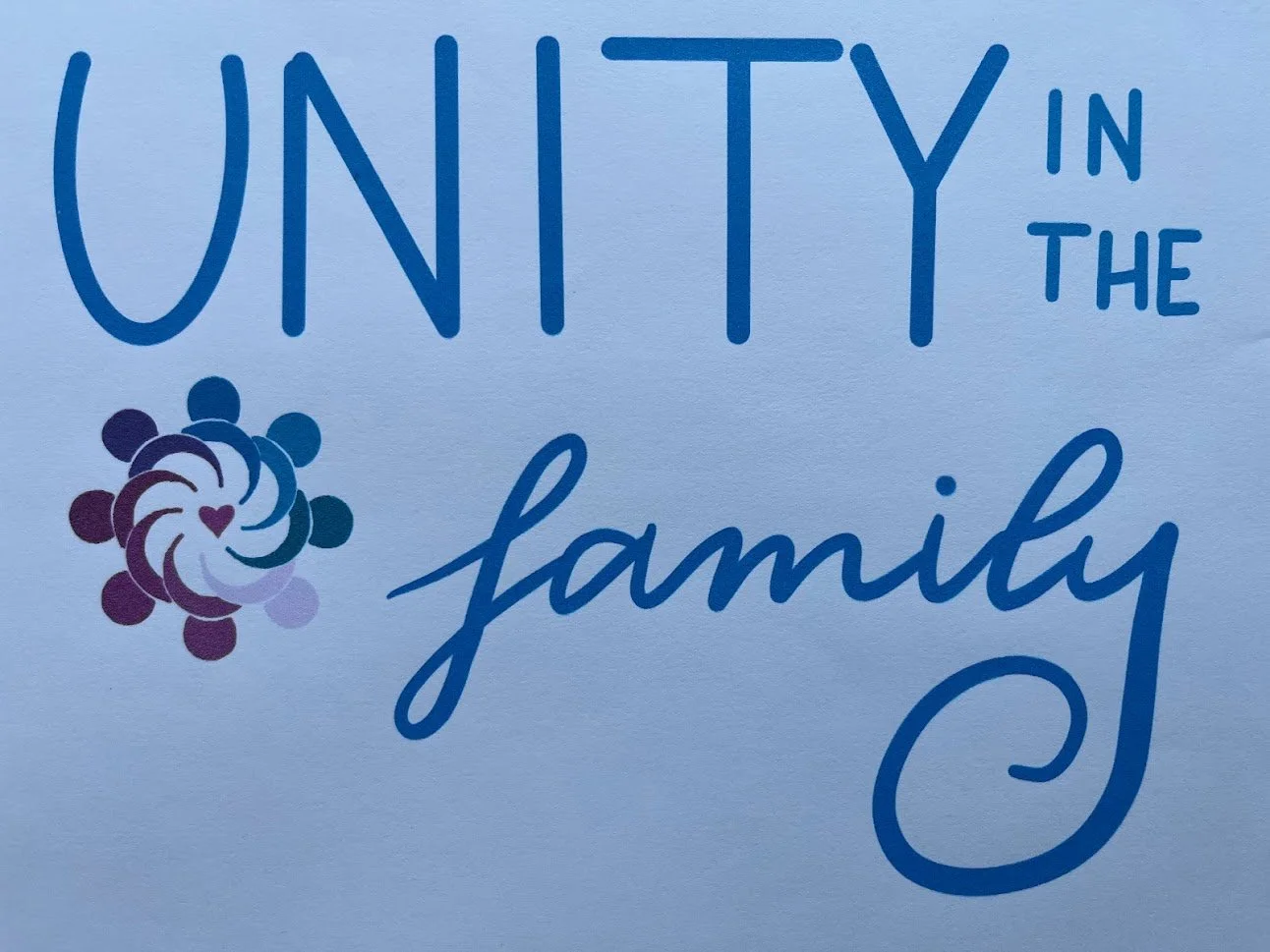Silver Linings Vol. 2, No. 4
This is the second of two blog entries on forgiveness.
Mary Elizabeth Naegele
Last week our painter Edman arrived with his crew to lighten and brighten two rooms that have long been distinguished by color saturation: a 12-foot red accent wall in our dining room is now cloud white and our deep orange family room is now a soothing, pale gray-blue. Dark curtains in the family room were replaced with white ones, and the dark cherry floor of our dining room is now white oak.
“Light, bright and warm in tone,” our architect son had suggested, and that design philosophy seems an apt metaphor for springtime – and perhaps an ideal disposition for each of us.
Among the burdens that can keep us from feeling light-hearted and uplifted are unresolved mistakes and our own failure to forgive ourselves.
My friend Mattie* texted a passage from The Four Agreements by Don Miguel Ruiz: “How many times do we pay for one mistake? The answer is thousands of times. We have a powerful memory. We make a mistake, we judge ourselves, we find ourselves guilty, and we punish ourselves. If justice exists, then that was enough; we don’t need to do it again. But every time we remember, we judge ourselves again, we are guilty again, and we punish ourselves again, and again, and again.”
How exhausting and fruitless! And familiar.
Yet there’s no time like the present to ponder releasing ourselves from the bondage of regret, shame, or guilt, and all the accompanying misery.
Like love, forgiveness is an act of the will, and the fruits are priceless: psychological, emotional, social, and even physical well-being. That is true whether we’re forgiving others or ourselves and whether we are motivated by religious belief or not.
Beating yourself up “How often is God glorified when you beat yourself up?” asks Fr. Mike Schmitz in an Ascension Press Media video. “That doesn't happen. Why? Because that's not your good. God loves you and he wills your good. So will your own good.”
Fr. Mike acknowledges that it’s difficult for us to forgive ourselves and proposes three reasons why, along with a solution.
“I don't necessarily think that it's just because I committed this sin, that I failed to live up to this objective standard,” he says. “I think it's that there are consequences that I have a tough time living with, or because people found out and now they see me in a new light, or because things are out of my control.”
He counsels to take the consequences you have no power over and the shame you feel and “put them under the Lord Jesus: ‘God, I can't do anything here; if there's anything more I could do, I would do it. I place them under your dominion; you get to be Lord of all of it. If you're Lord of all of it, I'm lord of none of it. When I want to beat myself up about the shame of it, I’m going to resubmit it. I'm going to once again place it under you. Jesus, you are the Lord of my life, and that means you're the Lord of those broken parts, too.’”
Fighting despair “At times when I feel more strongly the regret for my sins and the irreversible damage I’ve done, I can have trouble forgiving myself,” says Mattie. “Of course, I then feel sad because I can’t change the past,” she adds, pointing out that such sadness is devilish rather than helpful.
“As a mother, I know I would forgive my child anything. To not believe that Our Lord can forgive me is forgetting that I am a daughter of God. It also means I don’t believe that God’s infinite mercy doesn’t, for some reason, apply to me.
“I will always feel regret, sometimes strongly, but I try not to let it make me sad or despair. I try to think of others who I have no trouble believing were forgiven, like Mary Magdalene, St. Paul, Blessed Alessandro Serenelli (Maria Goretti’s murderer) and many others. I remind myself that not to forgive myself is a temptation of the devil, but to forgive myself brings joy, gratitude and compassion for others in their weaknesses and failings.”
Making amends Magdalene says that at a low point as a mother she felt she was “worthless and had wrecked it all. It was a complete consequence of all my bad choices.” Calling her sons “a tribe of rebels,” she says their rebellion was in response to their mother. “Part of the problem was my fault; they were scandalized by my behavior. I was a strict, authoritarian mom,” she says.
After seeing what she considered her part in her sons’ rejection of their family’s values, “I was desperate and out there alone.”
“I went to Confession with the realization of my part in their rebellion. Afterward I felt our Father God say, ‘I was with you the whole time. It’s true. You scandalized them. That doesn’t change my love for you. I love you and I forgive you.’
“I felt that he knew I was trying my best with limited resources. I was a victim of human failure. I didn’t feel he was excusing me. It was important for me at that moment to own it.”
In the moment she felt God’s forgiveness, Magdalene says she was able to forgive herself. She calls it an ongoing process. “I don’t want to let it go altogether. I’m constantly trying to make amends. [She mentions cookie packages.] The resolution I made in that moment was that I never wanted to hurt people I love again, to never hurt anyone again. It was a pivotal moment of growing in love, refining my love. It was a deep, humbling moment.”
You can’t blame yourself “You try your very best not to slight another,” Julie says, “but somewhere along the line it can happen.” She wonders, “How do you forgive yourself?” Julie and her husband had a child with time-consuming, complicated medical conditions and she believes that one of her other children suffered from a want of attention. “She ended up with headaches, and they wondered at school, ‘Is something happening at home?’”
The child, now grown, denies it to this day. “Oh, no, Mother,” is the response when Julie tries to apologize. “I’m constantly working to draw her out of herself, constantly trying to help the situation. She’s a faithful, good daughter.
“How do you forgive yourself?” Julie asks again. “You made a mistake and you have to live with it. You have to abandon yourself with humility and pray that they develop the way God wants them to do. You can’t blame yourself; you are who you are. You have to go to God with great humility. He wants the best for you and that party.”
Asking forgiveness “The biggest obstacle I face is my own unforgiveness of myself for past mistakes – even unintentional ones,” says Elizabeth.
Despite that obstacle, she has come to see that asking – and receiving – forgiveness from another makes it possible for her to forgive herself.
“I needed to have a difficult conversation with my college son about a series of poor choices that were affecting his academic performance,” Elizabeth says. “I planned my conversation in prayer and as I sat with him to share my concerns, the words that came out were not what I had planned. Inexplicably, I heard myself say, ‘I was not there for you when I was busy taking care of your dying grandparents. I was going through a hard time emotionally and I wasn't able to be with you in those months – that turned into three years. I am so sorry. I hope you can forgive me.’ It was the beginning of a beautiful change in our relationship.”
There is no perfect mom Elizabeth passes on a pep talk: “I learned many years ago from a wise spiritual mentor that it's good to lighten up, to try to let go of the tendency to perfectionism, self-criticism, self-blame. There is no perfect mom. We will make mistakes, we will let people down, but we can face all of that with honesty, courage, gentleness and self-compassion. When we forgive ourselves as God forgives – which means forgiving and forgetting, not holding on to a ledger of past mistakes – we are set free. We are freer to experience what is good, noble and beautiful in ourselves and others, to find humor in our missteps, to live well in the gift of the present moment and concentrate on our own growth and on the ongoing building and repair of family relationships. We can finally feel peace as we make peace with our past.”
“Undo any damage…” No doubt each and every mother one could interview would have some regrets about times when parenting went awry – for as many reasons as there are mothers. I too have apologized to my children.
A wise mother of many taught me this short prayer: Please undo any damage I did, and fill in where I missed, and I pray it regularly.
Insights from a clinical counselor Barbara Currano, a therapist in private practice in Clarksville, Md., has been helping families sort through their challenges for 15 years.
“People have trouble forgiving themselves when they violate their own morals,” she says. “A person might have done something years ago that did not violate her personal ethics at the time but then has a conversion and has trouble forgiving herself. It’s very common that women who had abortions 20, 30, 50 years ago are only now trying to heal.”
Another hurdle can be false guilt, as in the case of women who were sexually abused. “They may have been told it was their fault because ...’you’re so cute, so beautiful, you flirted with me when you were three years old.’ It can never be [the victim’s] fault,” Barbara emphasized. Marriage problems can be similar. “A spouse who emotionally or physically abuses his wife blames the wife, so she might have a problem forgiving herself for, as he says, ‘making him mad,’ or even for marrying him,” Barbara says. “Again, she is not responsible.”
Such cases often require therapy. “It’s hard to get over false guilt,” Barbara says. “People often need help.”
Whereas forgiveness of others does not require reconciliation, it could be necessary to reconcile in cases where self-forgiveness is desired “by a person who has cut off a friend or relative on purpose,” Barbara says. “It’s not the friend or relative’s fault, it’s just that you’re angry. It might be necessary to reconcile in order to feel OK with yourself.”
Reconciliation in order to forgive oneself is the case especially at the end of life. “If you cut off a person and you or they are dying, it may be necessary for emotional or spiritual peace to reconcile, especially if the cut-off was just out of your anger, and not for personal or emotional safety,” she says.
The non-religious and self-forgiveness While it is helpful to have religious convictions when taking steps to forgive oneself, it may not be essential, Barbara says, but in such cases, repetition is usually necessary. “You would have to make many acts, many decisions to forgive yourself over and over, especially for serious things like abortion, murder, sexual abuse,” she says.
Self-forgiveness requires humility, Barbara says. “We need to accept ourselves as flawed and weak and in need of grace.”
* Names and in one case details have been changed to protect the innocent.
©Mary Elizabeth Naegele 2024




















